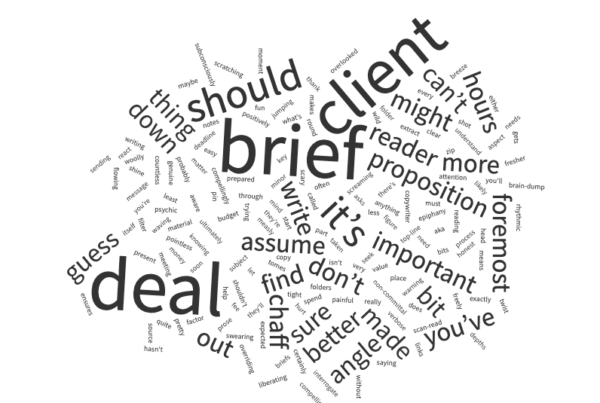People tend to assume, understandably, that the hierarchy of deciding factors in choosing to invest in a product or service is something along these lines:
1 Cost
2 Quality/suitability
3 The people behind it all
But it isn’t.
Unless it’s a sandwich, a new car, or a pair of sunglasses, the leap of faith is based on far more than cost parity, or ‘value’ in the purely monetary sense. Cost is, of course, a factor. And, of course, part of the conversation. But it’s actually far less important than most people – or the ‘procurers’ themselves – might think.
People will perhaps begin with the ‘do you do XXX?’ question, or ‘how much do you charge for ZZZ.’ But ultimately, the clincher lies in the question they don’t ask:
“What’s it like doing business with you?”
That’s because if you ask a provider of pretty much anything, ‘what’s it like doing business with you?’, they’re hardly going to say ‘average’, or ‘a bit shit’. They’ll say ‘amazing!’ or ‘you can count on us!’ And immediately, you suspect they’re lying!
That’s modern human nature, right there.
In the same way, if you market yourself as ‘trustworthy’, ‘meticulous’, ‘dedicated’ or ‘a lovely bunch’, the typical interpretation is that you’re dodgy, half-arsed and/or unhinged.
Sad, but true. But it kind of makes sense. After all, why would you even feel the need to say those things, prompted or otherwise? Surely such characteristics are a given…
Well, yes and no. They’re assumed to an extent, but potential customers, partners, investors or influencers will look for evidence of those characteristics in their initial interactions with you. They will start by assuming you’re nothing special, but hope that you’re better than that, as they start poking around and judging for themselves.
As they do that, they’ll begin to develop a sense of ‘who you are’ and ‘what you’re like’ – and what they sense will most likely be the clincher (everything else being more or less equal).
The upshot is this: people deal with people. Or at least a personality, or a value system they can relate to. So the best policy is to (collectively) be yourself. Then you’ll sound like yourself, and people will feel at ease with you enough to spend a few more quid on whatever it is they want or need – or to choose you over someone else asking the same or less for essentially the same thing.
Ultimately, the key is to show, not tell.
And to SOUND LIKE YOU.
If that’s not good enough reason to think pretty profoundly about how your business communicates, I don’t know what is. Even more so when the service you’re offering is far more qualitative than quantifiable… when it’s creative, strategic… when the benefit isn’t obvious, tangible, or immediate.
Of course, I would say that. It’s what I help people do.
My point is that I’m not saying I’m brilliant, or better than my competitors. Or ‘you can trust me to do a good job, honest.’.
I’m simply being me, doing what I do, and hinting at the value of that combination in helping you achieve what you want to achieve.
For me, that’s the best chance I can give myself of securing the opportunity to prove it to you.




